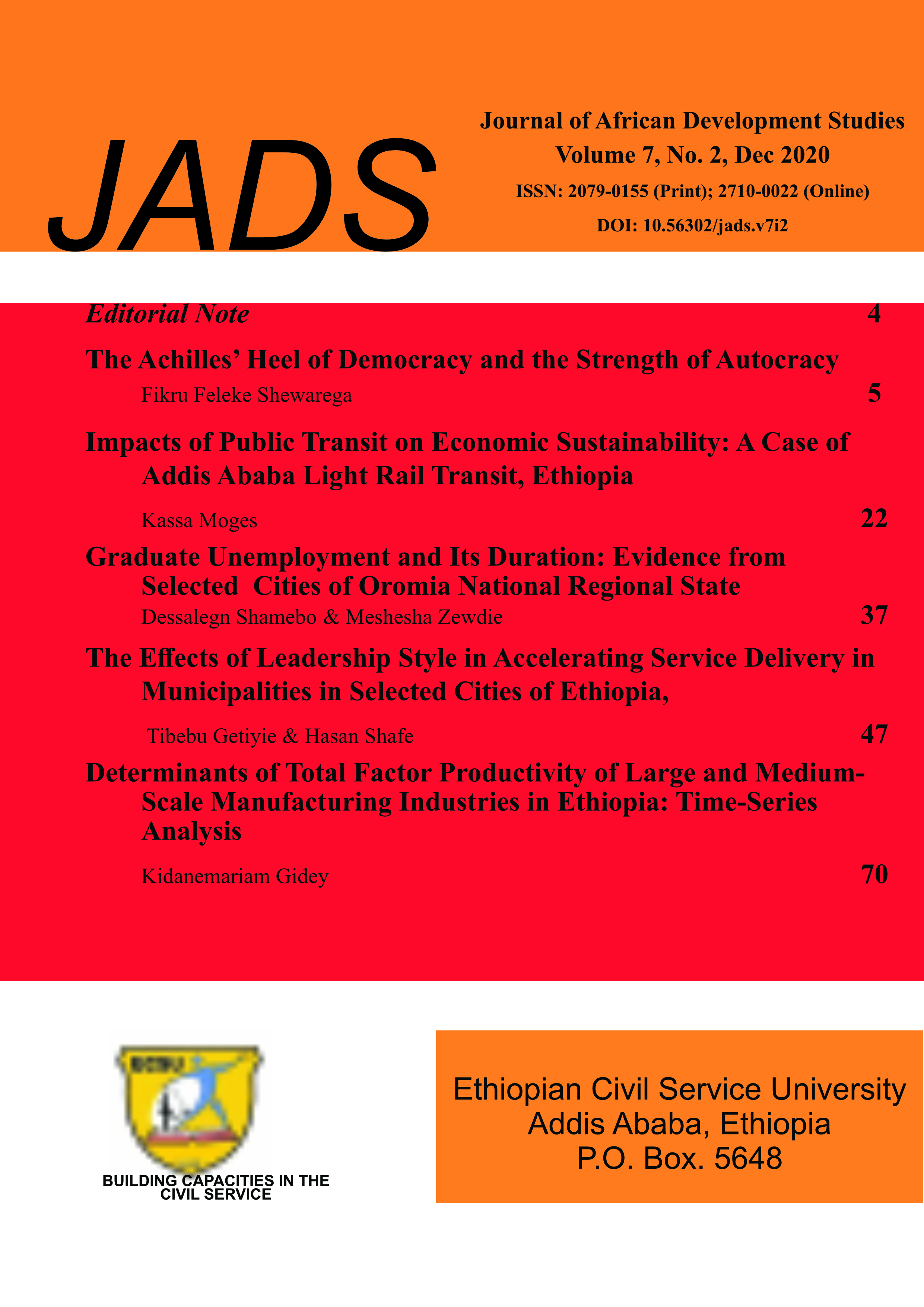Graduate Unemployment and Its Duration: Evidence from Selected Cities of Oromia National Regional State
DOI:
https://doi.org/10.56302/jads.v7i2.3109Keywords:
Graduate Unemployment, duration of unemployment, logit model, Weibull regression.Abstract
Generally, it is believed that higher education lowers the risk of unemployment. However, in developing countries including Ethiopia despite the expansion of higher education graduate unemployment has become a concern. It is threatening the stability and peace of the counties. Accordingly, the study had an objective of identifying determinants
of graduate unemployment and its duration based on data collected from 600 graduates in selected towns of Oromia National Regional State. To analyze the data, logistic regression and Weibull regression were employed. The result from the logistic regression model identified that level of education, specialization, place of residence (town), and year of
graduation significantly affect the employability of graduates. The findings from the Weibull regression for survival analysis also showed that level of education, specialization, year of graduation, and place of residence were important in determining the duration of graduate unemployment. The result further revealed that graduates of engineering had 33.5% less hazard rate compared to graduates of natural science. Similarly, the hazard rate of level I graduates was higher than that of the other levels of graduates. These results imply the need for considering employability when opening a program and inclusion of entrepreneurship in the curriculum to make graduates innovative and forward looking.

Downloads
Published
How to Cite
Issue
Section
License
Copyright (c) 2020 Journal of African Development Studies

This work is licensed under a Creative Commons Attribution-NonCommercial-ShareAlike 4.0 International License.




